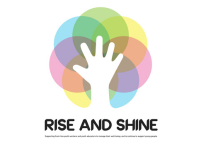Section outline
-
The Reflective Practice Journal supports you in strengthening your mental, emotional, and physical well-being. The journal includes 30 short, practical activities designed to fit into daily routines. Each activity takes 3–5 minutes and combines learning, self-reflection, and actionable strategies.
This resource helps you build essential skills such as emotional regulation, time management, stress recognition, mindfulness, and resilience. As you explore each activity, reflect on how it affects your daily life and discover which strategies fit naturally into your self-care routine. The journal supports ongoing reflection and insight, offering a structured yet flexible path to strengthening your well-being.
We invite you to enroll by clicking on the text "Enroll me in this course" - available in the blue bar at the top of the screen.
Enjoy your learning!
-
This section includes your 30-day Well-being Planner and Self-Reflection Journal. Each day focuses on a short activity that supports your mental, emotional, or physical well-being.
Here’s how to use it:
- Start with Day 1 and continue one activity per day, in order.
- Each page links to a quick online task (video, article, or quiz) via a link or QR code.
- After completing the task, use the reflection space to write down what you learned, how you felt, and how it applies to your life.
Be honest and consistent — your reflections are for you. Take 5 minutes a day. Small steps lead to lasting well-being.
-
This is a formative quiz. It provides question, answers and feedback. To complete the quiz, give your answer and press the Check button under each question set. This will show the feedback for your answer.
-
This is a formative quiz. It provides question, answers and feedback. To complete the quiz, give your answer and press the Check button under each question set. This will show the feedback for your answer.
-
This is a formative quiz. It provides question, answers and feedback. To complete the quiz, give your answer and press the Check button under each question set. This will show the feedback for your answer.
-
This is a formative quiz. It provides question, answers and feedback. To complete the quiz, give your answer and press the Check button under each question set. This will show the feedback for your answer.
-
This is a formative quiz. It provides question, answers and feedback. To complete the quiz, give your answer and press the Check button under each question set. This will show the feedback for your answer.
-
This is a formative quiz. It provides question, answers and feedback. To complete the quiz, give your answer and press the Check button under each question set. This will show the feedback for your answer.
-
This is a formative quiz. It provides question, answers and feedback. To complete the quiz, give your answer and press the Check button under each question set. This will show the feedback for your answer.
-
This is a formative quiz. It provides question, answers and feedback. To complete the quiz, give your answer and press the Check button under each question set. This will show the feedback for your answer.
-
This is a formative quiz. It provides question, answers and feedback. To complete the quiz, give your answer and press the Check button under each question set. This will show the feedback for your answer.
-
This is a formative quiz. It provides question, answers and feedback. To complete the quiz, give your answer and press the Check button under each question set. This will show the feedback for your answer.
-
This is a formative quiz. It provides question, answers and feedback. To complete the quiz, give your answer and press the Check button under each question set. This will show the feedback for your answer.
-
This is a formative quiz. It provides question, answers and feedback. To complete the quiz, give your answer and press the Check button under each question set. This will show the feedback for your answer.
-
Acknowledgement. This learning material has received funding from the European Union under Grant Agreement—2023-2-CZ01-KA220-YOU-000175004, ERASMUS+ Cooperation partnerships in youth for implementing the project “Rise and Shine”.
Disclaimer. Funded by the European Union. The views and opinions expressed are those of the authors and do not necessarily reflect those of the European Union or the Czech National Agency for International Education and Research. Neither the European Union nor the grant provider can be held responsible for them.
Copyright notice. CC BY. The license Attribution CC BY lets others distribute, remix, adapt, and build upon your work, even commercially, as long as they credit you for the original creation. This is the most accommodating of licenses offered. Recommended for maximum dissemination and use of licensed materials.








